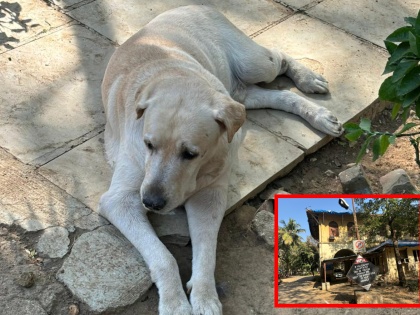Activists and Pet Lovers Raise Concerns Over Current Healthcare Facilities And Accessibility of New Tata Trusts Hospital
By Snehal Mutha | Published: February 8, 2024 08:08 PM2024-02-08T20:08:56+5:302024-02-08T20:09:46+5:30
The opening of the Tata Trusts Small Animal Hospital in Mahalaxmi will offer advanced veterinary care for pets in ...

Activists and Pet Lovers Raise Concerns Over Current Healthcare Facilities And Accessibility of New Tata Trusts Hospital
The opening of the Tata Trusts Small Animal Hospital in Mahalaxmi will offer advanced veterinary care for pets in Mumbai, but questions linger about its accessibility for pet owners with limited financial resources. Animal activists and animal lovers raised concerns about the capacity of animals it can handle, and the location of the hospital.
Mumbai does not have a proper healthcare system for animals. An injured animal is either taken to an NGO or private clinic. Utmost Mumbai has one full-fledged hospital, which accommodates animals, but that is not feasible for someone from the suburbs. Opening of Tata Trusts Small Animal Hospital is welcome but being located in Mahalaxmi it becomes problematic. However, making a move when there is nothing then it is a good move" said Nishant Bangera, an Animal Rights and Environmental activist.
Shivani Bhatt, an educator at Nursery Monji and an animal lover, suggests the implementation of multispecialty facilities, particularly along the Western Line, to address issues like spinal injuries, ageing, and blindness among sheltered animals.
Mumbai being a major urban centre lacks a government veterinary hospital, however, Bai Sakarbai Dinshaw Petit Hospital for Animals (BSDPH) is the only hospital in Mumbai that charges subsidised fees and is located in Parel near Mahalaxmi. Deepak Chaudhari, Manager of the Emergency Response Team for People for the Ethical Treatment of Animals (PETA) India, said, "The problem is increasing population of animals and limited resources to accommodate emergencies. On a daily basis, from Mumbai alone, we get 50 to 70 emergency cases, in such a situation what will you do." Reiterating Bangera's concerns about the hospital's location, he further acknowledged the potential positive impact of the Tata hospital but stressed the need for more facilities, particularly in the western suburbs.
Currently, the BSCPA serves as the only 24/7 facility in Mumbai, offering various services for both small and large animals. However, due to financial constraints, the hospital began charging fees in 2019. The hospital has a capacity of 80 cats, 250 dogs, 40 cattle and 10 horses along with AC accommodation for pets and owners. They provide services like X-Ray for small and big animals, pipeline oxysen, surgical department, operation theatres, ultra sound, and ECG.
Colonel B. B Kulkarni, head of BSCPA said, "Due to Tata's hospital burden on BSCPA may ease off, but doubtful whether a person from a low-income group will be able to access these services. We have 60% of the influx of stray animals, I doubt that will be treated at Tata hospital free of cost or at minimal charges.
Bangera expressed the major drawback of the current system is the non-
Bangera identified overcrowded facilities and limited bed availability as significant drawbacks of the current system. He also highlighted the financial burden on stray animal caretakers, stating current private hospital charges are unaffordable.
"The financial strain on caretakers in slum areas is immense, as they struggle to afford even basic healthcare for the animals they look after, despite earning modest incomes ranging from five to eight thousand rupees," added Bhatt. Bhatt emphasized the increasingly hostile urban environment for animals, where restrictions on building entry and widespread tree removal leave them with few places to rest beside the roads. She recounts a case where a cat required amputation due to polio, but limited resources forced them to seek assistance from the army.
Bhatt proposes that hospitals implement an earnest money system to help mitigate the financial burden on caretakers. Additionally, she urges the government to intervene, suggesting that tax revenue could be allocated to support animal healthcare services.
Open in app